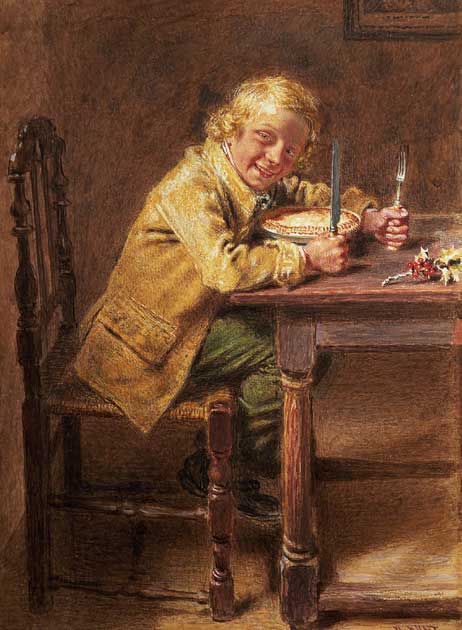Did Oliver Cromwell Really Ban Mince Pies in England?
Oliver Cromwell was an English commander and politician who helped overthrow the Stuart monarchy during the era of the English Civil War and then served as Lord Protector of the Commonwealth of England. He is a deeply controversial figure due to his use of the military to first acquire, then retain political power, and the brutality and violence of his 1649 Irish campaign. The anti-monarchist has also been remembered for a far more mundane facet. If you believe everything you read on the internet, it appears that that Oliver Cromwell banned not only Christmas, but mince pies as well. Some sources even claim that this ban remains in place even today.
The truth is, you shouldn’t believe everything you read on the internet. Oliver Cromwell was a devout Puritan, having converted in the 1630s. During the Interregnum, the time between when Charles I was executed in 1649 and his son arrived in 1660, Oliver Cromwell came to prominence, as did the ideals of the Protestants Puritans.

Oliver Cromwell at the battle of Marston Moor on 2 July 1644. (Abraham Cooper / CC BY-SA 4.0)
During this time the Puritans started to clamp down on what they deemed as frivolous additions to Christian religiosity, part of the Protestant campaign to keep Catholic influence in check. This was an era in which Christmas was celebrated much like today, but with added fervor, celebrations lasting the full 12 days of Christmas and festivities including games, gifts, parties and lavish feasting.
With the arrival of the English Civil War, the country was living troubling times and the Puritans saw this as their chance to make their mark on not only Christmas, but public holidays and celebrations in general. The concept of a Christmas ban actually began in Scotland in 1638, but in 1642 Parliament passed a bill signed by King Charles I, decreeing that the last Wednesday of every month be spent in fasting, contemplation and prayer.
In 1644, the last Wednesday of the month coincided with Christmas, and on the 19th of December Parliament passed the “Ordinance for the better observation of the monthly Fast” reiterating the need for prayer and fasting. Over the following years, the Puritans continued to push their agenda, establishing that there should be no special religious celebrations at all.
This culminated in a June 1647 ordinance which attempted to ban Christmas and other public holidays. This was very unpopular, and in some cases even led to riots. Over the coming years, other attempts to ban Christmas also fell flat on their face and in 1660 the legislation was repealed.

Christmas pie in painting by William Henry Hunt. (Public domain)
But, how on Earth has the urban legend of Oliver Cromwell’s ban on mince pies taken root? According to Stuart Orme, the curator of the Cromwell Museum, the idea that Oliver Cromwell was responsible for banning Christmas, mince pies or any other kind of food is, to put it bluntly, “bonkers.” Cromwell actually left behind no archival evidence to help historians understand if he had any opinions at all related to pies or anti-festive legislation. So, the idea that Cromwell had some kind of vendetta against Popish mince pies, or any other kind of pie for that matter, is just another example of half-baked fake news.
Top image: Traditional mince pies. Source: Magdalena Bujak / Adobe Stock
By Cecilia Bogaard




















Comments
"The truth is, you shouldn’t believe everything you read on the internet."
OK.
"Oliver Cromwell was a devout Puritan, having converted in the 1930s."
Case in point?
History is replete with winners and losers. Cromwell was a winner, until he lost and became grist for the revisionist mill.
Although Cromwell's leadership was largely only half right, which is still probably better than that which some of the revisionists could muster, the half that was wrong wasn't enough for their slanderous purposes and so they exaggerated the pitiless record.
Reading history may make one smarter, but believing too much of it can also have the opposite effect. It is worth remembering that half-right is often as good as history gets.